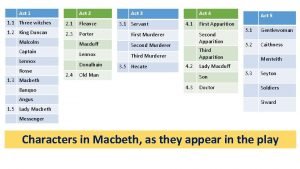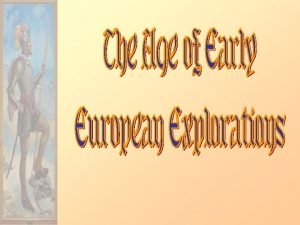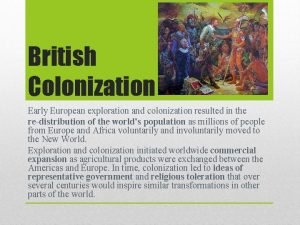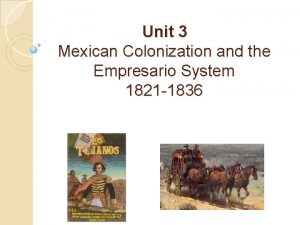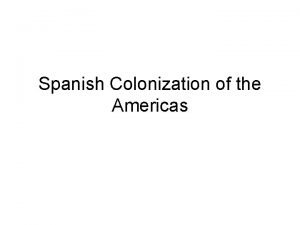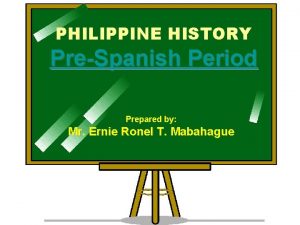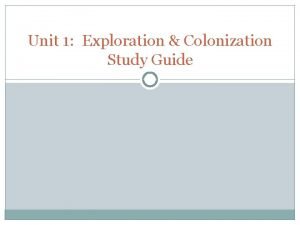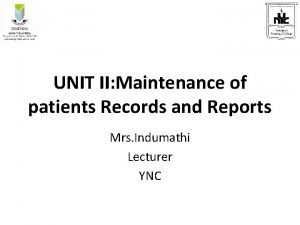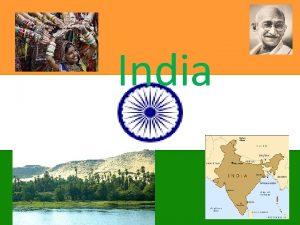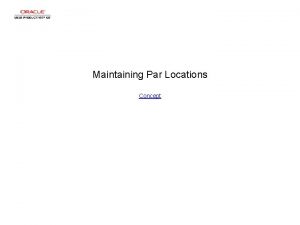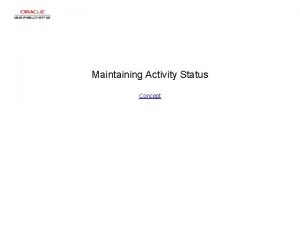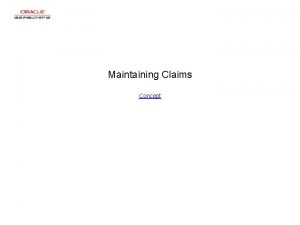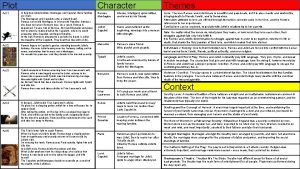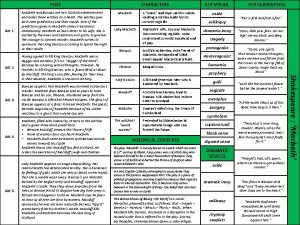COLONIZATION COLONIZATION The act of expanding and maintaining








- Slides: 8

COLONIZATION

COLONIZATION • The act of expanding and maintaining authority of territory and people • Different forms of colonization: • Settler - large-scale immigration to replace the original population • Exploitation - focuses on the exploitation of natural resources or population as labour • Internal - uneven structural power within a state

HISTORIC COLONIALISM • European Colonialism started with the Age of Exploration (15 th Century) • Early Colonial powers included Spain and Portugal competing for territories in South America • Later included North America • European Treaties determined who got what territories • Doctrine of Discovery – Allows a country to claim an empty territory • Treaty of Tordesillas (1494) declared that only non-Christian lands could be colonized under the Discovery Doctrine • Second Wave Colonialism Flares up again in the 19 th Century • Focus on Africa and Asia

COLONIES IN 1914

5 STAGES OF COLONIALISM Steady State Decolonizatio n Internalized Colonialism First Encounter Colonial Relations

FIRST ENCOUNTER • After initial contact was made, colonization went about a few different ways: • Conquest - Militarily attack, conquer, plunder and subjugate (Spanish Conquistadors) • Trade – Set up trade and create dependence on colonial power for manufactured goods (British Empire) • Settle – Move people into an area and lay claim (British Empire)

COLONIAL RELATIONS (BUILDING BLOCKS OF COLONIZATION) 1) Make Money • Set up trade with the native inhabitants. • Collect raw materials cheaply (with local labour) and export for cheap, then sell back manufactured goods for more. • Tax local people 2) Assume and Maintain Control • Create divisions within the colonized population • Ex. Who held what jobs (ie. Lighter skin = administrative jobs; darker skin = labour) • Helped maintain or created social hierarchies (weapon technology, military support) • Create sense of superiority through education – make colonial power think they are morally right, helping inferior/less developed peoples; make colonized

IMPACT OF COLONIALISM • Immediate: • Spread of diseases • Economic gain • Short Term: • Improved infrastructure • Enslavement • Technological progress • Long Term: • Creation of unequal social relations • Exploitation • Spread of colonist languages, literature and cultural institutions • Endangering or obliterating native peoples and their culture/language
 Macbeth act 2 summary
Macbeth act 2 summary What is the cycle of conquest
What is the cycle of conquest Early european exploration and colonization resulted in -
Early european exploration and colonization resulted in - What role did erasmo seguin and jose antonio navarro
What role did erasmo seguin and jose antonio navarro God gold glory spanish
God gold glory spanish Unit 2: exploration and georgia colonization
Unit 2: exploration and georgia colonization Aliping namamahay
Aliping namamahay Unit 1 exploration and colonization
Unit 1 exploration and colonization Importance of maintaining records and reports
Importance of maintaining records and reports
